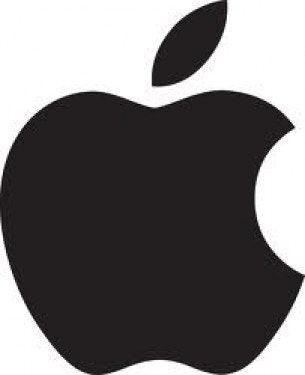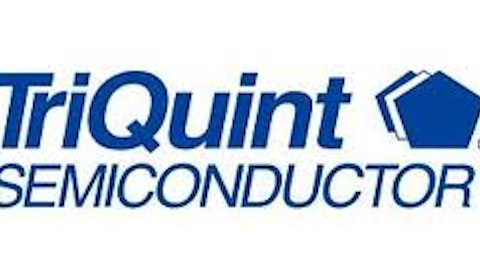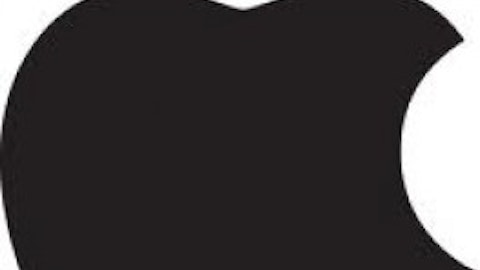Everyone knows you have to pay for cell service, but an odd quirk of the U.S. telecom industry has left many believing that cell phones should be either heavily discounted or free. Only those phones have to be paid for, and that has long meant higher monthly cell phone bills. This dynamic could be changing.

A Stalled Technology
The problem that Apple and other phone markers are facing today is that the newest cell phones aren’t captivating enough to get people running out to the stores for an upgrade. That’s been dragging down Apple and Samsung shares. Apple Inc. (NASDAQ:AAPL)’s top line continued to trend higher quarter-over-quarter through the first quarter of 2013, but was lower in the June period on weak iPad and computer sales. Despite continued iPhone strength, some have been forecasting a drop in demand for handsets on inventory build ups at Apple Inc. (NASDAQ:AAPL)’s suppliers.
With the shares down some 40% from their all-time highs, however, the risks of a sales slump appear to be factored into Apple’s price. And the price to earnings ratio is around 11, which almost makes Apple Inc. (NASDAQ:AAPL) a value stock. A yield of around 2.8% even provides a floor for the shares should a slowdown actually occur.
Another Headwind
Plans by T MOBILE US INC (NYSE:TMUS) and AT&T Inc. (NYSE:T) could make the cost of an iPhone a bigger issue to deal with than slowing technological advances. With $1.3 billion in revenue in the first quarter (it earned a dime a share), T MOBILE US INC (NYSE:TMUS) is tiny compared to AT&T Inc. (NYSE:T) and its over $31 billion first quarter top line. However, being an also ran can be liberating, too.
After pairing up with MetroPCS, T MOBILE US INC (NYSE:TMUS) has become more aggressive on the marketing front. It’s offering no-contract deals and is working to stop subsidizing phones. The iPhone 5 costs T MOBILE US INC (NYSE:TMUS) customers $146 up front plus 24 “easy” monthly payments of $21. It’s doing the same thing with Samsung’s Galaxy S4.
Some buyers may not realize that they are paying full fare for the phone, but others might not mind since paying in full at T MOBILE US INC (NYSE:TMUS) can help them avoid a two year contract and allows them to get an unlimited use plan. Increasing use of data is a major customer trend in the industry and can result in large cell phone bills if customers aren’t careful with their data use on limited data plans.
Still, there’s little reason to invest in T MOBILE US INC (NYSE:TMUS) at this juncture unless you expect it to be acquired. It’s too small to compete effectively with the industry’s giants. What it is doing, however, is making life hard at AT&T Inc. (NYSE:T).
AT&T Inc. (NYSE:T) has been playing catch up with Verizon for several years. Its shares reflect the difficulty it’s faced, as its around 5.1% dividend yield is almost a full percentage point above the yield on Verizon’s shares. And, as AT&T is dealing with competition from Verizon, it is also fighting off smaller players, like T-Mobile, from below.
Not willing to cede ground, AT&T Inc. (NYSE:T) has started to mimic its smaller brethren. For example, it is shifting the cost of cell phones onto customers for the privilege of avoiding a contract. Sales were down sequentially and year-over-year in the first quarter, so investors are right to be concerned about AT&T’s future.
However, it appears that the aggressive sales push will lead to a reversal of that trend in the second quarter. The company, which just bought Leap Wireless will work hard to keep the momentum positive. In fact, AT&T Inc. (NYSE:T) is probably the best option in the cell space right now for income investors based on the likelihood of improved results and its long history of annual dividend increases.
What About Apple?
The problem in all this for Apple Inc. (NASDAQ:AAPL), and other manufactures like Samsung, is the changing dynamic with regard to phones. As more and more cell companies try to shift the cost more blatantly onto customers for competitive and profit reasons, the more obvious it becomes that cell phones are expensive.
Slowing innovation added to what will appear to customers to be increased costs will lead to even longer upgrade cycles. Customers will have to question the benefit of a new phone if the old one still works just fine. Although Apple’s price appears to reflect this issue already, it is one that investors need to watch closely. How the company deals with it could be the difference between just collecting a dividend and capital appreciation.
The article Your Cell Phone Isn’t Free originally appeared on Fool.com and is written by Reuben Brewer.
Reuben Brewer has no position in any stocks mentioned. The Motley Fool recommends Apple. The Motley Fool owns shares of Apple. Reuben is a member of The Motley Fool Blog Network — entries represent the personal opinion of the blogger and are not formally edited.
Copyright © 1995 – 2013 The Motley Fool, LLC. All rights reserved. The Motley Fool has a disclosure policy.





